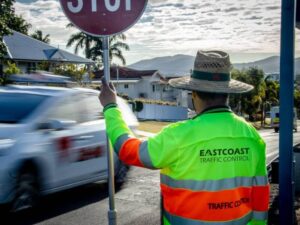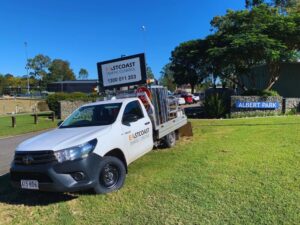In the realm of traffic management, the significance of robust relationships with local councils and road authorities cannot be overstated. These partnerships are the backbone of effective traffic control, ensuring that operations run smoothly and safely. At East Coast Traffic Control (ECTC), we understand the critical role that trust and collaboration play in our success. This article delves into the importance of these relationships and how ECTC has cultivated and maintained strong partnerships with local councils and road authorities.
The Importance of Strong Relationships
Ensuring Compliance and Safety
One of the primary reasons for building strong relationships with local councils and road authorities is to ensure compliance with local regulations and safety standards. Traffic control is a highly regulated industry, and staying updated with the latest rules and guidelines is crucial. By maintaining close ties with these bodies, ECTC can ensure that all our operations are compliant, thereby minimising risks and enhancing safety.
Streamlining Communication
Effective communication is the cornerstone of any successful project. Strong relationships with local councils and road authorities facilitate open lines of communication, ensuring that any issues or changes can be addressed promptly. This streamlined communication helps in the efficient planning and execution of traffic management plans, reducing delays and improving overall project outcomes.
Access to Local Knowledge and Resources
Local councils and road authorities possess in-depth knowledge of the areas they oversee. By fostering strong relationships with these entities, ECTC gains access to valuable local insights and resources. This local knowledge is instrumental in tailoring our traffic control solutions to meet the specific needs and challenges of different regions, from urban centres to rural areas.
Building Trust Through Collaboration
Proactive Engagement
At ECTC, we believe in proactive engagement with local councils and road authorities. This means not only responding to their needs but also anticipating them. Regular meetings, consultations, and participation in community events are just some of the ways we stay engaged. This proactive approach demonstrates our commitment to being a reliable partner and helps build trust over time.
Transparency and Accountability
Transparency and accountability are key to building and maintaining trust. ECTC prioritises transparency in all our dealings with local councils and road authorities. We provide clear and comprehensive reports, maintain open lines of communication, and are always accountable for our actions. This transparency fosters trust and reinforces our reputation as a dependable traffic control provider.
Fostering Long-Term Relationships
Consistent Quality and Reliability
Delivering consistent quality and reliability is fundamental to building long-term relationships. ECTC’s commitment to excellence in all our projects has earned us the trust and confidence of local councils and road authorities. Our track record of successful project completions speaks volumes about our dedication to quality and reliability.
Investing in Community Development
Building trust goes beyond project execution; it involves investing in the communities we serve. ECTC actively participates in community development initiatives, supporting local events and contributing to regional growth. This investment in community development strengthens our relationships with local councils and road authorities, showcasing our commitment to the areas we operate in.
Final Word
Building trust with local councils and road authorities is essential for the success of traffic control operations. At ECTC, we have established and maintained strong relationships through proactive engagement, transparency, and a commitment to quality and community development. These relationships not only ensure compliance and safety but also enable us to deliver tailored traffic management solutions that meet the unique needs of different regions. As we continue to grow and innovate, our dedication to building and nurturing these relationships
FAQs
1. How does ECTC build trust with local councils and road authorities?
ECTC builds trust through proactive engagement, transparent communication, and a commitment to meeting the specific needs and standards of local councils and road authorities. We ensure compliance with all regulations and work closely with these entities to develop tailored traffic management solutions.
2. What are the benefits of ECTC’s relationships with local councils and road authorities?
Strong relationships with local councils and road authorities enable ECTC to streamline project approvals, ensure regulatory compliance, and facilitate efficient project execution. These partnerships also enhance community safety and improve overall project outcomes.
3. How does ECTC ensure compliance with local regulations?
ECTC ensures compliance by staying updated on all relevant regulations and standards. Our team undergoes regular training and we engage in continuous communication with local councils and road authorities to ensure our practices align with current requirements.
4. Can ECTC handle large-scale infrastructure projects?
Yes, ECTC has the capacity and expertise to manage large-scale infrastructure projects. Our established relationships with local councils and road authorities enable us to effectively coordinate and execute complex projects, ensuring safety and compliance at every stage.
5. How can I partner with ECTC for my traffic control needs?
To partner with ECTC, you can contact us through our website or call us at 1300 011 203. Our team will work with you to understand your project requirements and develop a tailored traffic management solution that meets your needs and ensures compliance with all local regulations.





